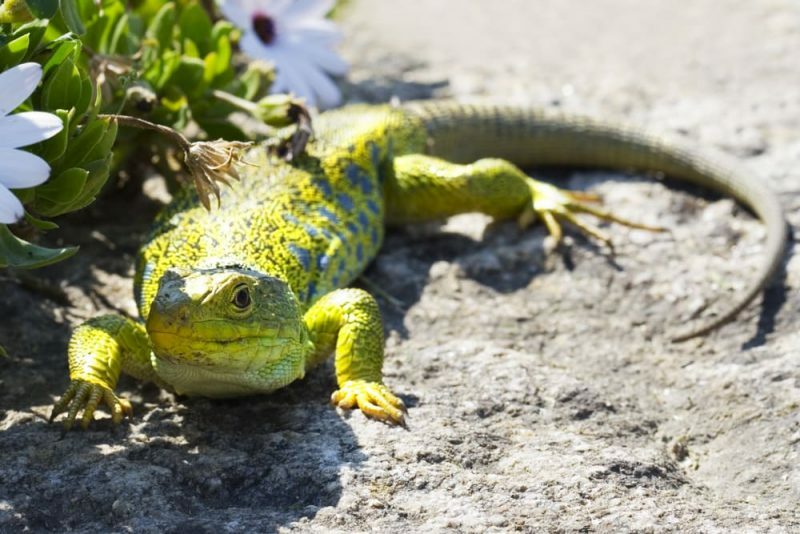Text on Nature
Miscellanea / / November 22, 2021
Text on Nature
What are we talking about when we talk about nature?
At the beginning of the 21st century, the word nature is increasingly on everyone's lips and begins to become a wild card for refer to things that may be very different from each other, running the risk of ending up depriving the word of all its meaning. But what exactly is that meaning? What are we really talking about when we refer to "nature"?
Let's start by understanding that the word "nature" and its root "natural" come from the Latin voice nature, derived in turn from verbnascor, that is, "to be born". The term originally referred to the origin of things, that is, to the processes that result in the perceptible world. Therefore, nature he was referring to the fundamental order of things, to the matrix that gave rise to the universe.
This concept, therefore, became more or less synonymous with the essence, that is, with the way in which things are spontaneously given, their way of appearing in the world. For example, we speak of "human nature" to refer to the most primitive or essential drives that human beings share; and sometimes even of "good" or "bad" nature, to refer to the intention with which we have said or acted on some occasion.
However, the task of giving a concrete concept to the word "nature" has never been easy and has been a challenge even for the encyclopedists of yesteryear. In his encyclopedic project, Diderot used the term "vague but frequent" and "seldom defined ”, while d'Alembert preferred to list the 14 or 15 different senses with which he could associate. In the contemporary version of the dictionary of the Royal Spanish Academy, for example, this word reaches 16.
It is difficult, then, to find the precise moment in which this term acquired its current meaning, which, although it continues to be Polysemic, it tends mainly to refer to the physical world, that is, to the world outside the hand and the intervention of the human being. But we know that the idea of “natural resources”Was probably key in the formation of this concept, and that is an idea typical of the modern world and of the Industrial Revolution, which clearly distinguished between the raw material, coming precisely “from nature”, and the manufactured goods, coming from the industry and human activity.
By extension, the natural ended up being everything alien to the action of the human being: ecosystems untouched, forest and biological refuges, or even the unknown microscopic world. Nature, then, understood as the "given" order of the world, as the way in which the world manages itself, would become a useful concept. to limit the human world, to establish its borders and delimit the portion of the planet that, in theory, we have not modified or does not depend on us.
This is a debatable concept, like any other, that responds to an industrial logic. But it is true that species They continually alter the environment in which they develop, that is, they pollute it, adulterate it, and this does not make "nature" stop being so. For example, in ancient geological times, the appearance of the first photosynthetic organisms meant a drastic modification of the natural environment, since these Organisms began to flood it with oxygen, which produced a biological catastrophe known as the Great Paleoproterozoic Oxidation, which occurred 240 million years ago. years.
Be that as it may, the limitations of the concept of nature do not restrict its usefulness in present times. The name we give to the given chemical, physical and biological order of the world matters little, that order that we are capable of altering and destroying simply to produce consumer items. What is truly relevant is to understand that that same order was, almost two million years ago, the one that allowed humanity to emerge and become the dominant species on the planet. Do we really want to alter that natural order of things? How healthy is it to do so?
References:
- "Text" in Wikipedia.
- "Nature" in Wikipedia.
- "Nature" in the Language Dictionary of the Royal Spanish Academy.
- "Etymology of Nature" in the Online Castilian Etymological Dictionary.
- "What does 'Nature' mean?" on Nature.com.
- "What is nature?" on Encyclopedia of the Environment.
What is a text?
In a strict sense, a text it is nothing more than writing: a set of visual signs, specifically organized to convey a message to the reader. It is a unit of global meaning, ideally endowed with coherence and cohesion, and made up of smaller pieces of written language like prayers or words.
In general, all text is understood as a linguistic text, that is, as a piece of verbal language; but some theorists have proposed that other types of discourse (such as fashion discourse, visual arts discourse plastic, etc.) can also be understood as a text, that is, as a series of signs that can be read to recompose a message.
Follow with:

